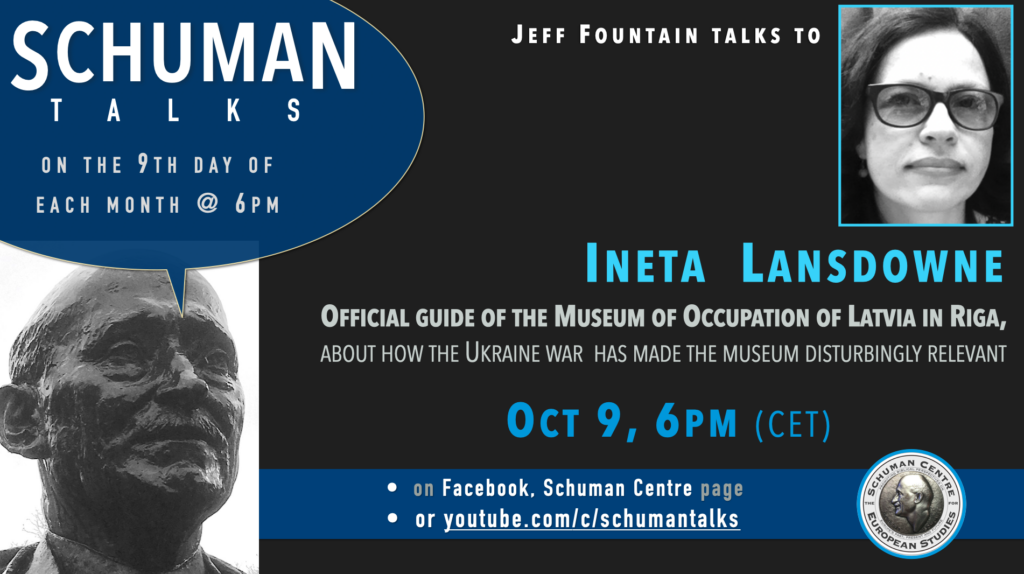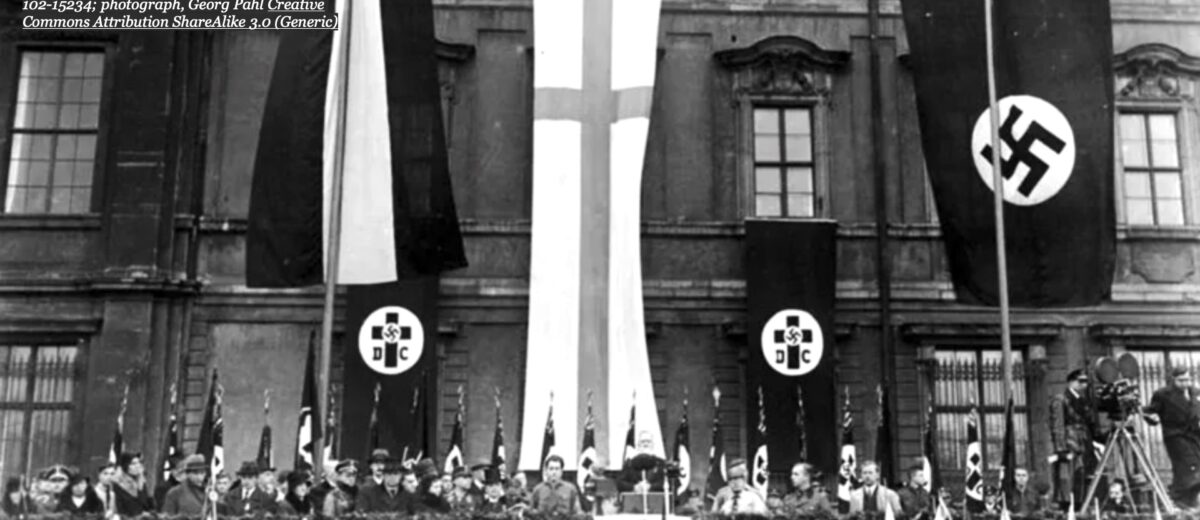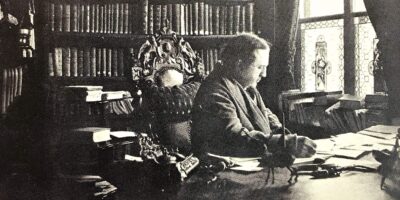We live in confusing times. Sometimes it is hard to know who or what to believe. Jesus warned us that false messiahs and false prophets would appear and perform great signs and wonders to deceive even the elect.
The rise of politicians from America to Russia claiming to champion Christian values and peace yet preaching hatred and division is polarising families, churches and communities even far beyond their own countries. Driven by self-aggrandisement, self-enrichment, vindictiveness and disregard for truth, human rights, rule of law, freedom of speech and of conscience, their words and actions contradict the Great Commandment to love God and neighbour (including enemies).
It is both sobering and instructive to reflect on the experience of German Christians in the 1930s – when a strong man emerged at a time of confusion and chaos, promising ‘stability, dignity and order’.
The humiliation of the Treaty of Versailles after World War One, the economic chaos and hyperinflation of the depression, moral and social upheaval in the Weimar Republic and fear of communist revolution all conspired to prepare the German people to welcome a saviour promising to make their nation great again.
They did not imagine they were blessing tyranny in 1933. They believed they were defending faith, family and nation against chaos. This man’s promises sounded almost biblical: unity, strength, renewal, faith in Providence, moral restoration! He spoke of “positive Christianity,” of protecting the German soul from atheism and moral decay.
Militant atheism and revolutionary socialism threatened from the East. To many, Bolshevism looked like the Antichrist. Many Christians welcomed this ‘strong man’ who would rebuild the nation and silence the enemies of order. National Socialism was presented as a moral bulwark against communism — a defense of “Christian civilisation.”
The years 1930-1933 were marked by hope and enthusiasm. A pro-Nazi faction formed in 1932 within the Lutheran Church calling themselves the Deutsche Christen (the ‘German Christians’). They enthusiastically endorsed this man as ‘sent by God’. Rejecting the Old Testament as ‘too Jewish’ and promoting an ‘Aryan Jesus’, they embraced a racial interpretation of Christianity and the slogan: “The swastika on our breasts, the cross in our hearts.”
Fear and intimidation
These Deutsche Christen gained control of many churches in 1933–34. Fear and intimidation influenced many clergy to conform. Nazi ideology baptised ethnicity. The Aryan race was treated as sacred. “Blood and soil” became a creed.
In January 1933, this ‘Führer’ became Chancellor. Two months later the Reichstag Fire gave him the excuse to command dictatorial powers. When the Führer later signed a Concordat with the Vatican, Protestants convinced themselves that the regime still supported Christianity.
In September, the German Evangelical (Lutheran) Church was officially ‘coordinated’ into the Nazi system, with the loyalist Ludwig Müller appointed as Reich Bishop. Thanksgiving services were held for this ‘new era’. Only a few lone voices, including Karl Barth and Dietrich Bonhoeffer, warned that “the church cannot have another Führer beside Christ.”
The years 1934–1936 saw both division and denial in the Church. Barth drafted the Barmen Declaration adopted by pastors opposed to state control who then formed the Confessing Church (Bekennende Kirche): “We reject the false doctrine that the Church could recognise any other lordship besides that of Jesus Christ.”
In 1935, the Reich Church under Müller collapsed in confusion. The Führer grew impatient with church politics. When Barth refused to swear loyalty to the Führer, he was dismissed from his Bonn professorship and expelled to Switzerland. Martin Niemöller founded the Pastors’ Emergency League to defend church independence.
After the Ministry for Church Affairs was established to control religion, many began to realise that the regime was not Christian, but pagan, racist and totalitarian. When the Confessing Church protested against racist ideology and violations of Christian freedom, the Führer ordered Gestapo raids and closed seminaries.
Costly discipleship
Bonhoeffer started an underground seminary at Finkenwalde, training pastors for ‘costly discipleship’. While a small minority of Christian leaders deepened its resistance, most remained silent or compliant.
In the years 1937-1938, the Confessing Church was declared illegal. Persecution and fear mounted. Niemöller was arrested and imprisoned along with many other pastors.
Then on the night of November 9, 1938, the infamous Kristallnacht saw Jewish synagogues and businesses ransacked and destroyed. This pogrom was the Führer’s declaration of war against Jews. Almost all church leaders remained silent, fearing reprisal or sharing antisemitic attitudes. Again Bonhoeffer was one of the few who spoke out, saying the church must “not simply bandage the victims but jam the wheel itself.”
Even when war broke out in September 1939, the churches initially rallied behind the troops, offering blessings and prayers for victory. Pastors preached obedience to state authority (Romans 13), even as persecution of Jews intensified. By 1941, when the Final Solution was under way, almost no church protest emerged. Silence prevailed. Less than one per cent actively resisted the regime, risking imprisonment and death.
After 1945, many church leaders expressed deep repentance for their silence and complicity, recognising they had confused nationalism with Christianity. The long, painful process of Vergangenheitsbewältigung (“coming to terms with the past”) began within the German churches.
Reflection: How would we have responded if we were in their shoes? Are we in their shoes (as in 1933)? If so, how are we responding?

Till next week,



